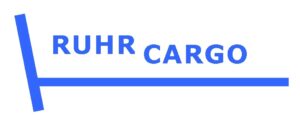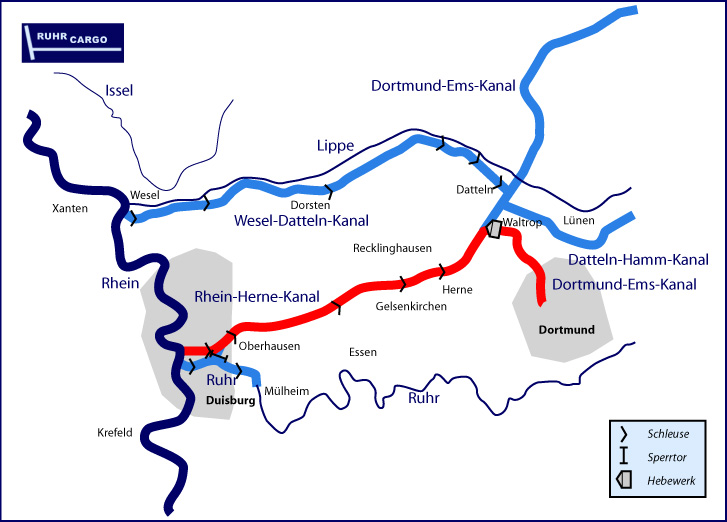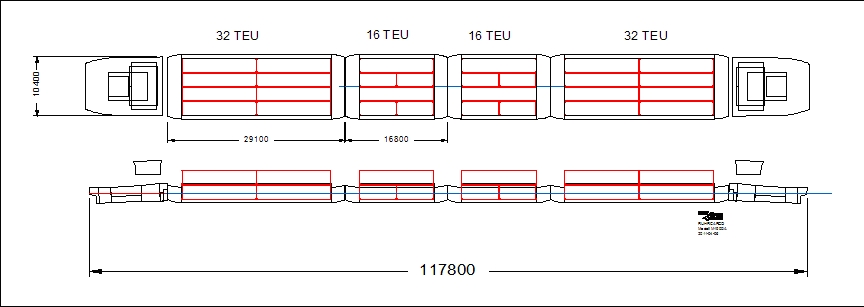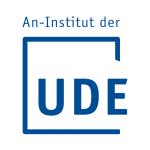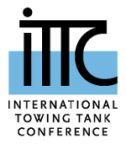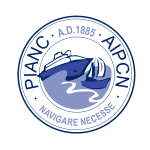RuhrCargo
Entwicklung eines leistungsfähigen und kostengünstigen Systems zum Transport von Containern auf den Binnenwasserstraßen zwischen den Häfen von Duisburg und Dortmund
Das Projekt für diesen neuartigen Shuttledienst umfasst neben der Entwicklung eines geeigneten Transportsystems auch alle weiteren relevanten Aspekte wie Marktanalyse, Logistikkonzept, Organisation und Analyse von Wirtschaftlichkeit und Umweltauswirkungen.
Der Umfang der Hinterland-Containertransporte zwischen den Westhäfen und NRW hat ein sehr hohes Niveau erreicht, auch für die Zukunft werden weiter steigende Transportvolumina erwartet. Ein erheblicher Teil des Aufkommens wird über den als Hinterland-Hub dienenden Duisburger Hafen abgewickelt. Ein großer Anteil der Container, die in hoher Anzahl zwischen Duisburg und Dortmund heute noch weitgehend auf der Straße befördert werden, könnten mit dem Ruhrcargo-Shuttleverkehr auf die Wasserstraßen verlagert werden.
Hauptziel ist die Entwicklung eines leistungsfähigen und kostengünstigen Systems zum Transport von Containern auf den Binnenwasserstraßen des Ruhrgebiets zwischen den Häfen von Duisburg und Dortmund.
Nach einer Analyse der Marktsituation wird ein Logistik-Konzept entwickelt, anschließend werden die Komponenten des Systems technisch optimiert. Der Einsatz des Transportsystems wird unter den Aspekten der Wirtschaftlichkeit und der reduzierten Umweltbelastung dargestellt und eine Strategie zur Implementierung entwickelt. Die Arbeitsschritte im Einzelnen: − Ermittlung des Marktpotentials – aktuell und künftig (Zeithorizont 2015) − Entwicklung des Logistik-Konzepts − Technische Verbesserungen – Transportmittel − Organisatorische Verbesserungen − Verbesserungen zur Reduzierung der Umweltbelastung − Wirtschaftlichkeitsanalyse − Strategien zur Einführung des Systems.
Unter anderem werden die folgenden Ergebnisse erzielt: (a) Entwicklung unterschiedlicher Umlaufpläne für den kontinuierlichen Containerverkehr zwischen den Häfen Duisburg und Dortmund. (b) Unter dem Aspekt der Baukosten optimierte Bauweise für die Schubleichter; dabei auch Reduzierung der Personalkosten für den Bau der Schiffe, so dass eine Fertigung in NRW wirtschaftlich möglich wird. (c) Optimierung der Umlaufplanung – mit Besatzungen, die nur während der Schicht an Bord bleiben – in Bezug auf die Umlaufzeit – in Bezug auf die Stückkosten. (d) Darstellung der Umweltbelastung im Vergleich mit Schienen- und Straßenverkehr bei dem Einsatz von konventioneller Technik auf den Schiffen. Ermittlung der Möglichkeiten zur weiteren Reduzierung der Umweltbelastung durch geeignete Technologie, z.B. Filtersysteme. (e) Kosten/Wirtschaftlichkeit: – Ermittlung der Systemkosten und der Lieferzeiten für die neuen Schiffe – im Vergleich zum Shuttleverkehr mit Standardschiffen – im Vergleich mit den konkurrierenden Verkehrsmitteln
Eine Realisierung des Konzepts wird wichtigen Zielen des NRW-Hafenkonzepts und des Strategiepapiers der Metropole Ruhr gerecht: − Volle, nachhaltige Nutzung der Wasserstraßen. − Entwicklung innovativer Schiffe zur besseren Ausnutzung der vorhandenen Infrastruktur. − Stärkung der Verteilfunktion im Hinterland der Metropole Ruhr. − Entlastung der Straßen, Verringerung von Ressourcenverbrauch und Emissionen.
Das neu entwickelte Transportsystem verwendet speziell konstruierte Schubleichter in einfacher Bauart mit hoher Containerkapazität. Die Schubleichter befinden sich im kontinuierlichen Umlauf zwischen den Häfen und werden von mehreren Schubbooten jeweils von Abschnitt zu Abschnitt der Kanalstrecke befördert. Die Besatzungen der Schubboote arbeiten im Ablöse-Betrieb, so dass an Bord keine Unterkunft mehr erforderlich ist. Die hohe Transportkapazität der Verbindung und die niedrigen Personalkosten reduzieren drastisch die Stückkosten des Systems, so dass in Bezug auf die Kosten ein Wettbewerbsvorteil zum Straßentransport entsteht.
Projektlaufzeit:
- September 2009 – August 2012
Förderkulisse:
- EU-NRW Ziel-2 (EFRE) Förderwettbewerb „Logistik.NRW“
Verbundpartner:
- Dortmunder Hafen AG
- Duisburger Hafen AG
- H&S Container Line GmbH
- Meidericher Schiffswerft GmbH & Co. KG
Folgeprojekt:
